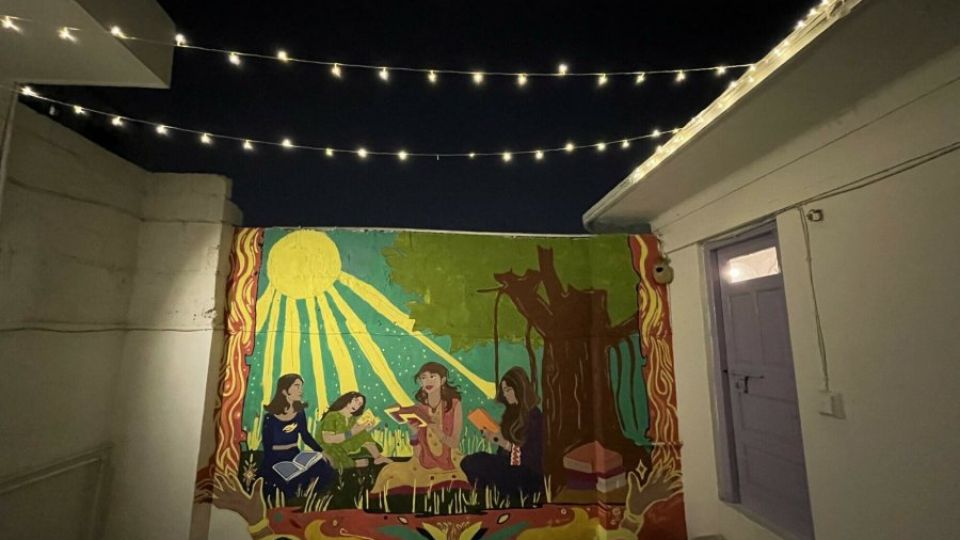October 22, 2024
ISLAMABAD – There was an almost whimsical air at the launch of Kitab Ghar Karachi as folks milled about the space underneath fairy lights and a chrome yellow moon, conversations and cordialities competing with the sticky heat for a place among people.
Saturday’s inauguration was a glimpse into what the space is envisioned to be — vibrant, community-oriented, resourceful, and radical. Contrary to the name, Kitab Ghar Karachi is more than just a public library. It’s a space for critical thinking and an opportunity to engage in dialogue through shared knowledge and resources, a space where people and politics are not relegated to the periphery.
“At the centre of it, we want to be a political education space that particularly engages with what’s happening around the country and the world, from a progressive, marginalised lens,” co-founder and programming manager Aisha Tahir explained to Images.
“It’s a space that aligns with and practices solidarity with organising work happening in the city and in the country.”
Kitab Ghar Karachi occupies the rooftop of the Climate Action Centre in PECHS, centrally accessible to almost everyone in the city. The space is a sister project of Kitab Ghar Lahore, which was founded in 2022.
The theme of the launch was ‘Resisting Erasure’, a multimedia exhibit that highlighted and paid tribute to the indigenous communities of Malir resisting the construction of the Malir Expressway.
A host of zines in the programming room informed guests of the work Kitab Ghar’s team has engaged in for the past few months, complemented by a screening of footage taken from their fieldwork.
The launch doubled as a fundraiser solidarity event with the Syed Hashmi Reference Library, which will receive proceedings from the sale of zines, tote bags and posters from the launch event.
A core focus of the event was raising awareness about the devastation faced by Malir’s indigenous communities.
“Whenever we have development projects here, we’re told they’ll benefit the city and its people. But what ultimately happens is that they’re benefiting the rich and the elite,” co-founder Fizzah Ghanchi said.
Mega-development projects like the Malir Expressway don’t take into account entire ecosystems and livelihoods that belong to and thrive in the area, essentially a rural belt of Karachi. Gravel from the Malir River was used in the Expressway’s construction, which has forced people to let go of traditional earning methods like farming. “So many birds aren’t there anymore, nor do flowers bloom after the habitat has been destroyed.”
Women’s mobility and livelihood in the area have been particularly affected, which they spoke about at the launch and the impact the project has on Karachi and its people overall. “Ultimately, Malir is providing a majority of fresh air, oxygen, and food to Karachi; if something were to happen to Malir, the whole city is impacted,” Ghanchi explained.
Initial angel investment from several donors helped fund Kitab Ghar, but the goal is to become self-sustainable through literary events and the sale of books to finance the library. Regular patrons and donations are also welcome.
Kitab Ghar aims to work with other libraries, bookstores and cultural places, “so that the city’s culture extract remains in everything we do.”
According to Tahir, the team is working on several more anti-development zines, organising, oral histories, marginalised histories, and protest histories. “We want to have a lot of political films and fun joyful films be screened; robust and multi-pronged programming in that way.”
“I hope for Kitab Ghar to be a space that is critical of mainstream narratives, focusing on centring voices of marginalised voices and challenging state narratives,” she said.
The kitab part of Kitab Ghar is a constantly evolving feature of the space, an amalgamation of the city’s people and cultures and memories and literary musings adorning the bookshelves.


